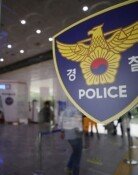Too Much Salt Intake
Bean-paste soup for breakfast, a bowl of wheat noodles for lunch, kimchi and salted mackerel as side dishes for dinner, and a pack of potato chips as an afternoon snack.
This is the ordinary menu of an average Korean. The daily sodium intake according to this menu is 5,850 mg, which is almost three times the maximum amount of recommended intake (2,000 mg) for an adult set by WHO (World Health Organization).
If you add kimchi to the bowl of wheat noodles, the sodium intake increases by about 1,000 mg. Koreans are eating salty food without knowing it. The government is sounding an alarm bell about the excessive sodium intake.
The Korea Food and Drug Administration, in a guide to food and nutrition called Cut Back on Your Sodium Intake for Your Health released on August 16, analyzed that Korean people are taking too much sodium because they are fond of hot and pungent soup such as finely cut noodles and ramyeon, instant noodles.
According to Korea Food and Drug Administration, finely cut noodles have the most sodium in a meal (2,900 mg) and ramyeon (2,100 mg). Two pieces of pizza, favored by kids, contain 2,600 mg of sodium, and a piece of salted mackerel, which is popular all year round, contains 1,500 mg.
Sodium is the main component of salt. Since the amount of sodium in a human body is controlled by urine, there is no need to worry about the deficiency of sodium in our daily lives. If one suddenly perspires a lot, sodium becomes deficient and blood pressure decreases, leading to a possible muscle cramp. Therefore, one needs to take a little amount of salt during intense workouts.
Yoo Tae-woo, professor of the Domestic and Medical department at Seoul National University, said, Even unsalted soup is saltier than sea water. Korean peoples high intake of sodium, an average of 4,900 mg per day, is a major culprit of cardiovascular diseases such as stroke and heart disease.
The Korea Food and Drug Administration advised to leave out soup and eat solid stuff in soup, season food with pepper, garlic, ginger, onion, and vinegar and avoid menus with breads that are not salty but rich in sodium.
Kang Yoon-sook, a researcher at the Food Standard Evaluation Department of the Korea Food and Drug Administration, said, Sodium is an essential element to physiological function. Too much sodium intake is harmful. It is misguided to think that sodium is a harmful substance.
TK Sohn sohn@donga.com







